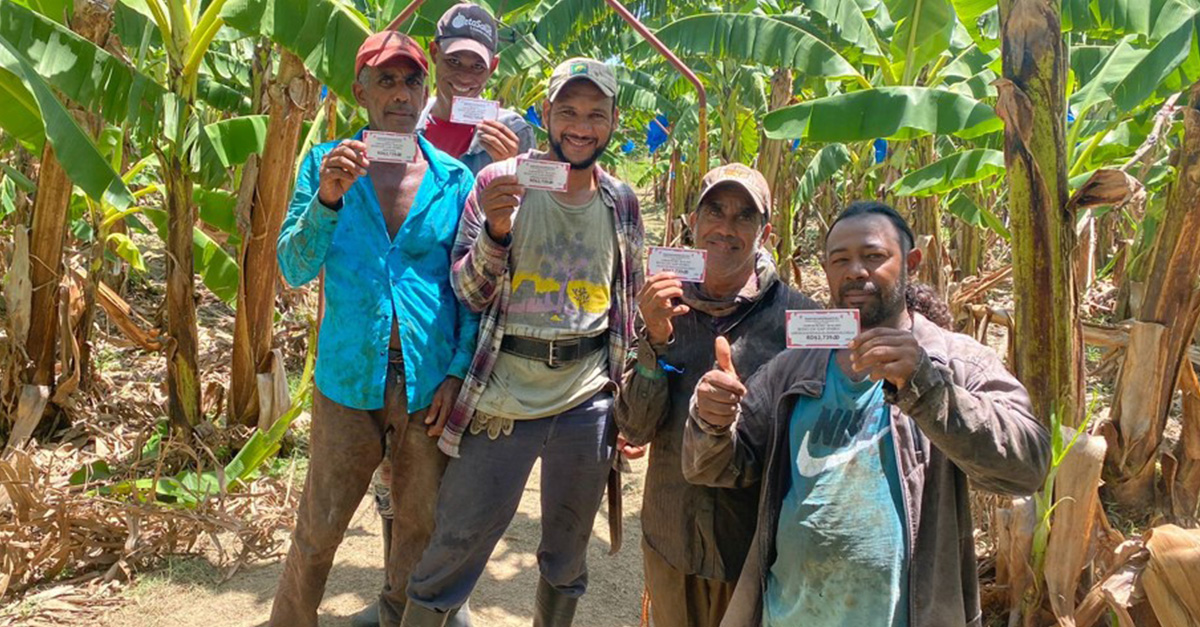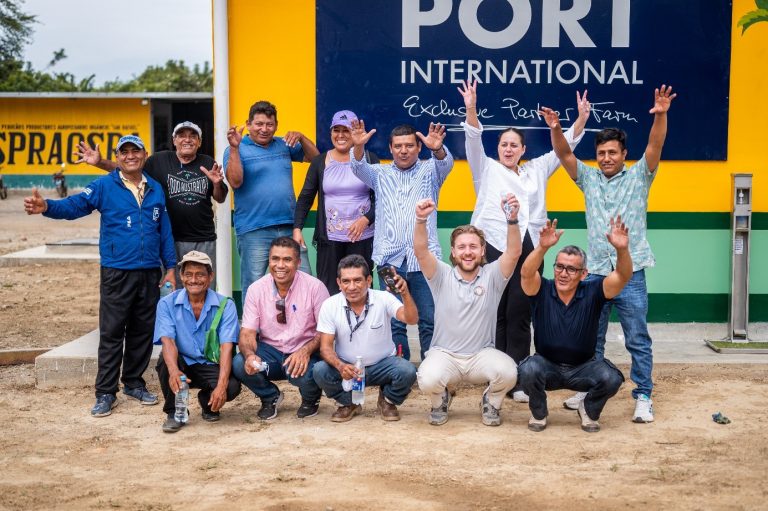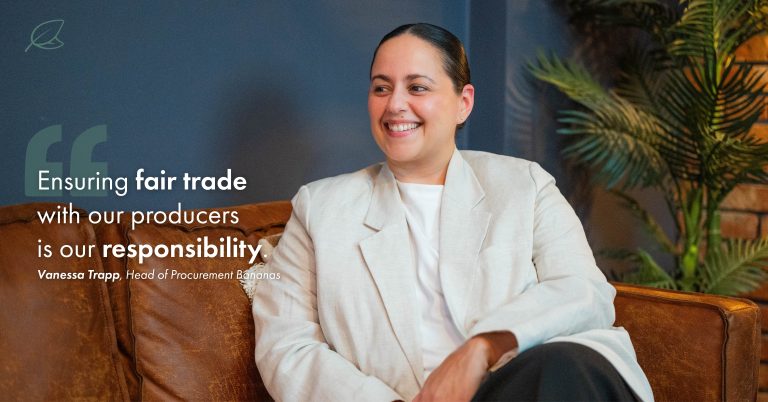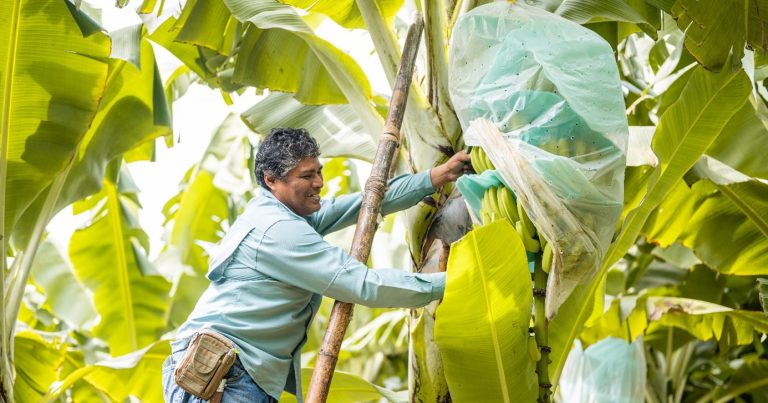Living Wage and the path to achieve it
Living Wage is a concept designed to help companies calculate the wage an employee would need to maintain a decent standard of living. A living wage should always allow workers and their families to meet their basic needs, such as food, shelter, healthcare, and education, while also providing some financial security for unforeseen events. The aim is to ensure not only their physical survival but also their social and cultural participation in society.
In many countries, the legal minimum wage is below the actual living wage, meaning that even if the minimum wage is adhered to, workers may still earn less than they need for an adequate standard of living. This issue is especially evident in agriculture, as more than half of the people affected by extreme poverty worldwide work in agricultural supply chains.
This is where the Living Wage comes in. Unlike a minimum wage, it considers the actual cost of living in a specific region at a given point in time, ensuring that the paid wage covers all the costs necessary for a decent standard of living. This means that the wage is tailored as closely as possible to the region of the worker, ensuring that the amount truly secures their livelihood.
Our Fairtrade banana producer Cana Group
In order to ensure the payment of fair wages along our banana supply chain, we teamed up with a retail customer at the end of 2021 to implement a joint Living Wage project at a farm of Cana Group, one of our banana producers in the Dominican Republic.
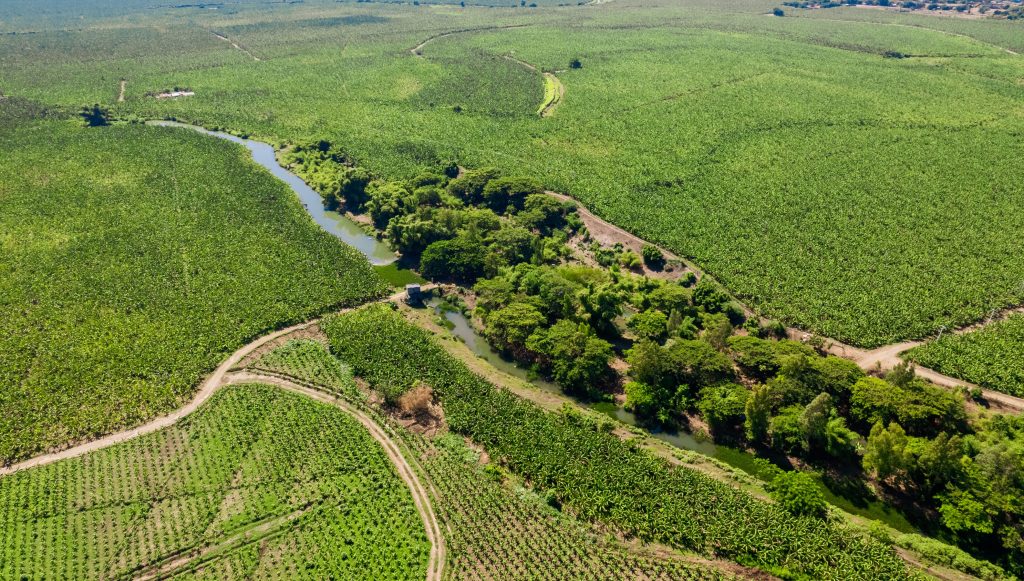
Located in the Mao region, Cana Group has 337 hectares of farmland and employs more than 450 workers. Each week, we import around 8 containers of Fairtrade and organic Fairtrade bananas from Cana Group to Europe, making them one of our most important banana producers.
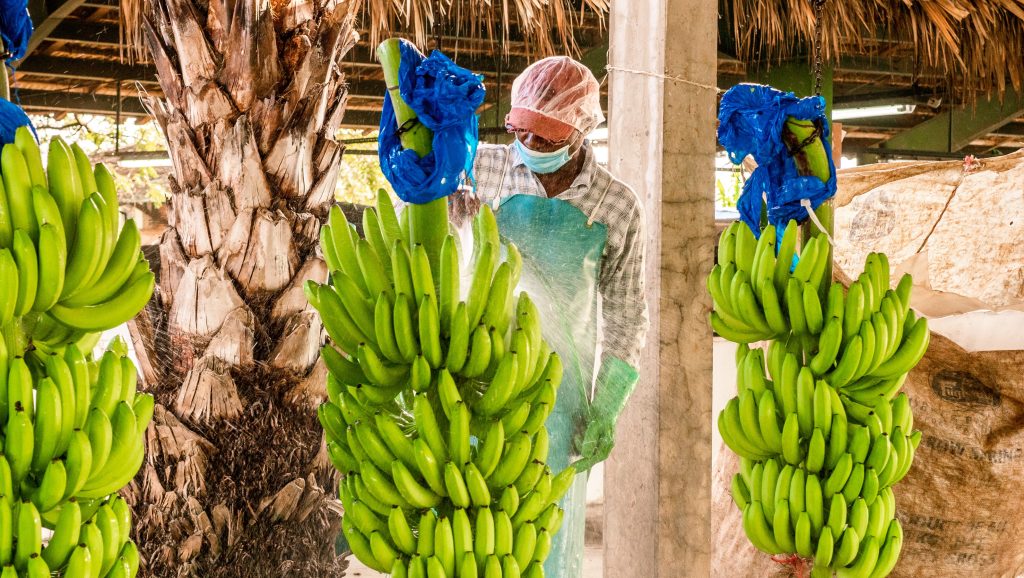
The implementation of our Living Wage project
After selecting our producer, we needed to develop an implementation plan for the Living Wage project. The first step involved the collaboration between our customer, Fairtrade, and the certification company FLOCERT to create a procedure for calculating and verifying the Living Wage on site.
In 2022, we began implementing the project with Cana Group. Initially, we assessed the current wage situation at Cana Group. After a thorough training on the Living Wage concept by IDH, the producer provided all relevant information needed for salary calculations. Based on this information, the actual wage standards were calculated. To verify these standards, we conducted a manual review of the documents and compared them with the producer’s wage data. Additionally, FLOCERT auditors carried out on-site audits.
Following this, the region’s Living Wage gap was determined using the IDH salary matrix. (How this works is explained in more detail in this blog post.) And indeed, a Living Wage gap was identified at our producer, indicating that we needed to take action to align the actual wages with the local Living Wage.
There are various options available for wage adjustment, e.g. salary increases, bonuses, or payments in kind. After careful consideration, we decided with Cana Group to distribute monthly food vouchers for a local supermarket in the amount of the wage gap to the employees. Vouchers have the advantage of being personalized and assigned to a specific purpose, thus ensuring that they are used to address a specific aspect of the Living Wage and cannot be misallocated.
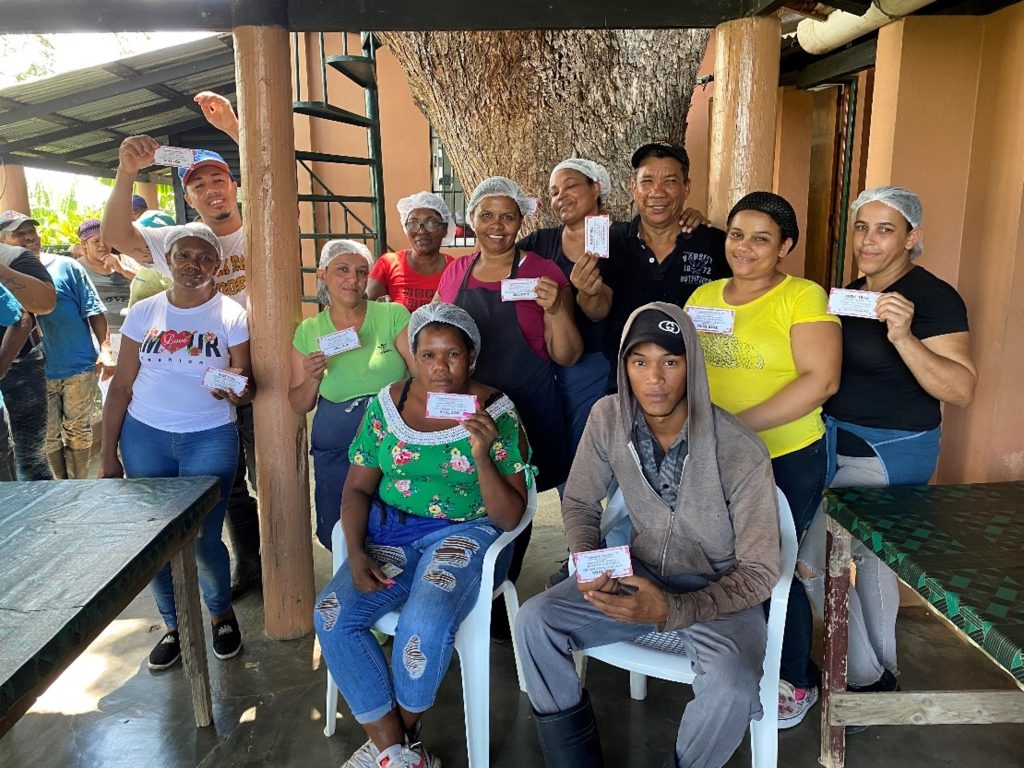
In 2023, Cana Group issued personalized food vouchers for the first time and, by doing so, was able to close the finca’s existing Living Wage gap as a result. The use of food vouchers was accepted by FLOCERT during the audit and will continue to be reviewed regularly.
Living Wage project completed: our conclusion
Our Living Wage project with Cana Group has now been running for 24 months. Our goal is to continue closing any wage gaps that arise, ensuring that all employees receive a fair wage. The success of this project is largely due to the close collaboration with Cana Group, our customer, IDH, Fairtrade, and FLOCERT. The organizational and bureaucratic effort behind such a project can certainly not be underestimated, but with good and intensive cooperation, it is achievable – and entirely worthwhile.
Our Living Wage commitment in the future
Supply chains are dynamic, subject to various influences, and involve a multitude of actors. This makes Living Wage projects like ours a complex challenge for everybody involved. Our project with Cana Group was a successful first step in advocating for fair wages along our supply chain.
“The Living Wage project with our partner Cana Group has shown us that together, we can achieve great things and reach many people. With our in-depth knowledge, we will work hard to ensure that we close wage gaps with all our banana suppliers by 2030 at the latest.”
— Vanessa Trapp, Head of Procurement Bananas at Port International
Based on our current findings, 83 % of the banana production sites we have reviewed pay a Living Wage, but we still have a lot of work to do to ensure truly fair wage conditions throughout our supply chain. Closing wage gaps along the entire supply chain requires an elaborate strategy and significant resources. We are working intensively on this and are motivated to implement Living Wages for all our banana producers by 2030 at the latest.

